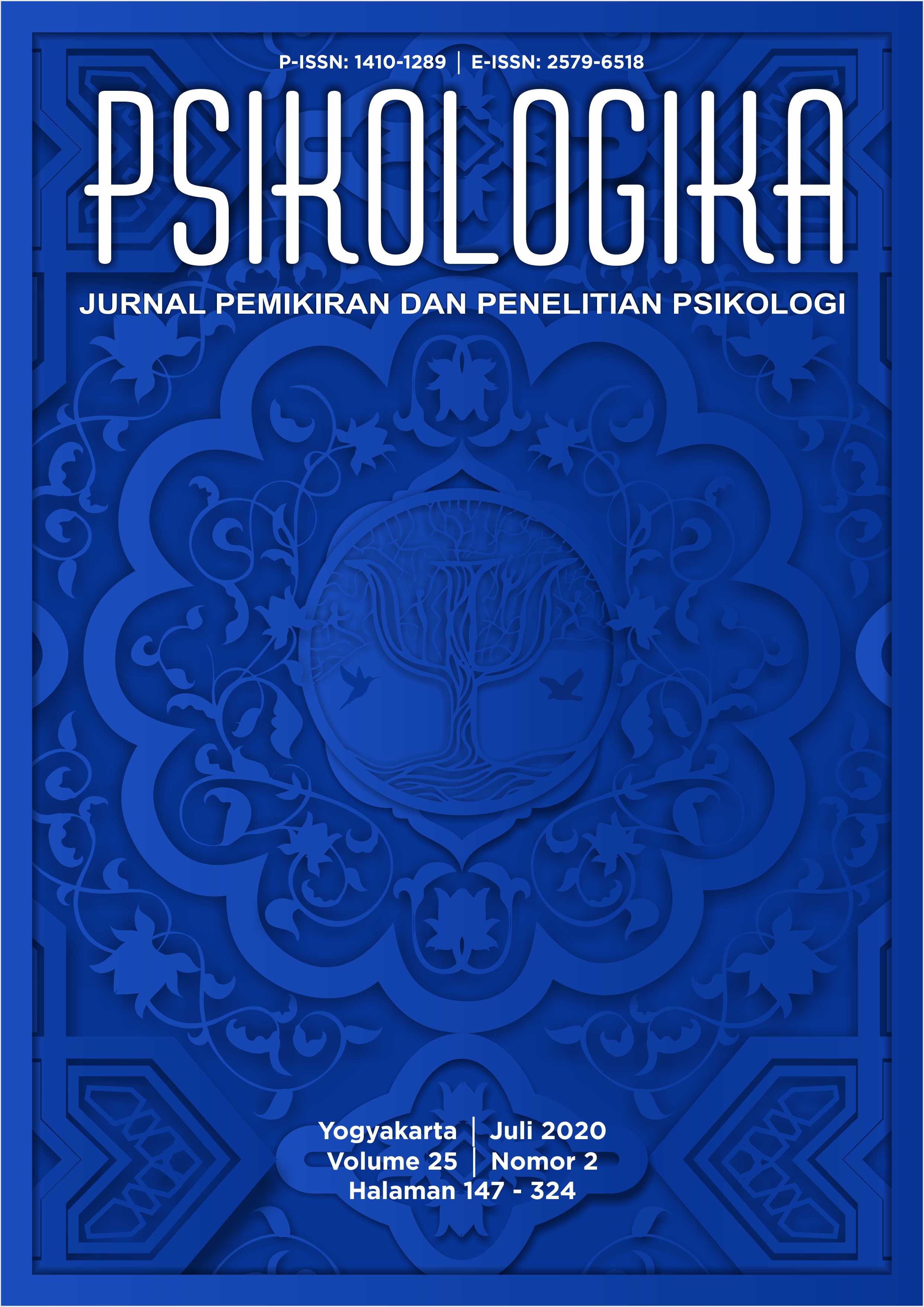Main Article Content
Abstract
Abstrak. Karyawan yang memiliki keterikatan kerja yang tinggi penting dimiliki oleh perusahaan agar dapat berkompetisi. Penelitian ini bertujuan untuk mengetahui peran efikasi diri sebagai variabel moderator pada hubungan antara tuntutan pekerjaan dan keterikatan kerja. Penelitian ini melibatkan 90 karyawan di Yogyakarta. Skala yang digunakan dalam penelitian ini adalah adaptasi skala The Utrecht Work Engagement Scale (UWES) (Schaufeli & Bakker, 2003), skala Tuntutan Pekerjaan (berdasar Schaufeli & Bakker, 2004), dan skala Efikasi Diri (berdasar Bandura, 1997). Hasil analisis menunjukkan bahwa: (1) Terdapat korelasi negatif antara tuntutan pekerjaan dan keterikatan kerja; (2) Terdapat korelasi positif antara efikasi diri dan keterikatan kerja; (3) Tuntutan pekerjaan dan efikasi diri secara bersama-sama dapat menjadi prediktor bagi tuntutan kerja; dan (4) Tidak terdapat efek moderasi efikasi diri pada hubungan antara tuntutan pekerjaan dan keterikatan kerja. Dapat disimpulkan bahwa, walaupun efikasi diri menjadi prediktor bagi keterikatan kerja, tetapi kuat lemahnya efek tuntutan pekerjaan terhadap keterikatan kerja tidak dipengaruhi oleh kuat lemahnya efikasi diri.
Kata Kunci: efikasi diri, keterikatan kerja, tuntutan pekerjaan
Job Demand and Work Engagement among Banking Employees:The Role of Self-Efficacy as Moderator
Abstract. Employees with high work engagement are important for the company. This study aimed to determine the role of self-efficacy as a moderator variable on the relationship between job demands and work engagement. This study involved 90 employees in Yogyakarta. The scale used in this study was the adaptation scale of The Utrecht Work Engagement Scale (UWES) (Schaufeli & Bakker, 2003) job demand scale (based on Schaufeli & Bakker, 2004) and self-efficacy scale (based on Bandura, 1997). The results imply that: (1) There is a negative correlation between job demands and work engagement; (2) There is a positive correlation between self-efficacy and work engagement; (3) Job demands and self-efficacy can be predictors of work engagement; and (4) There is no moderating effect on self-efficacy on the relationship between job demands and work engagement. Therefore, it might be concluded that although self-efficacy is a predictor of work engagement, but the strength of the effects of job demands on work engagement is not influenced by the strength of self-efficacy.
Keywords: job demand, self-efficacy, work engagement
Article Details
Authors who publish with this journal agree to the following terms:
- Authors retain copyright and grant the journal right of first publication with the work simultaneously licensed under a Creative Commons Attribution-ShareAlike 4.0 International License that allows others to share the work with an acknowledgment of the work's authorship and initial publication in this journal.
- Authors are able to enter into separate, additional contractual arrangements for the non-exclusive distribution of the journal's published version of the work (e.g., post it to an institutional repository or publish it in a book), with an acknowledgment of its initial publication in this journal.
- Authors are permitted and encouraged to post their work online (e.g., in institutional repositories or on their website) prior to and during the submission process, as it can lead to productive exchanges, as well as earlier and greater citation of published work (See The Effect of Open Access).




